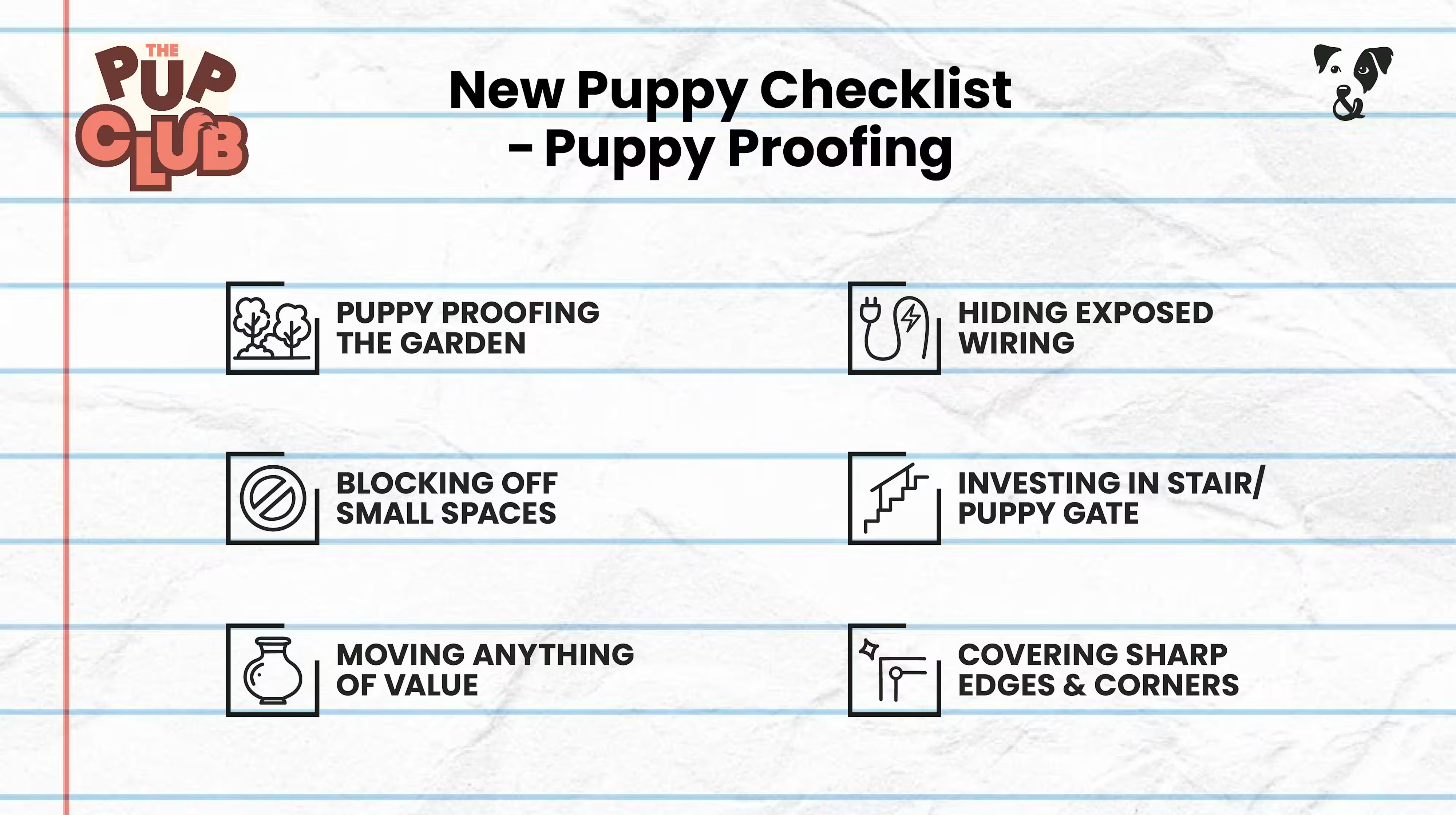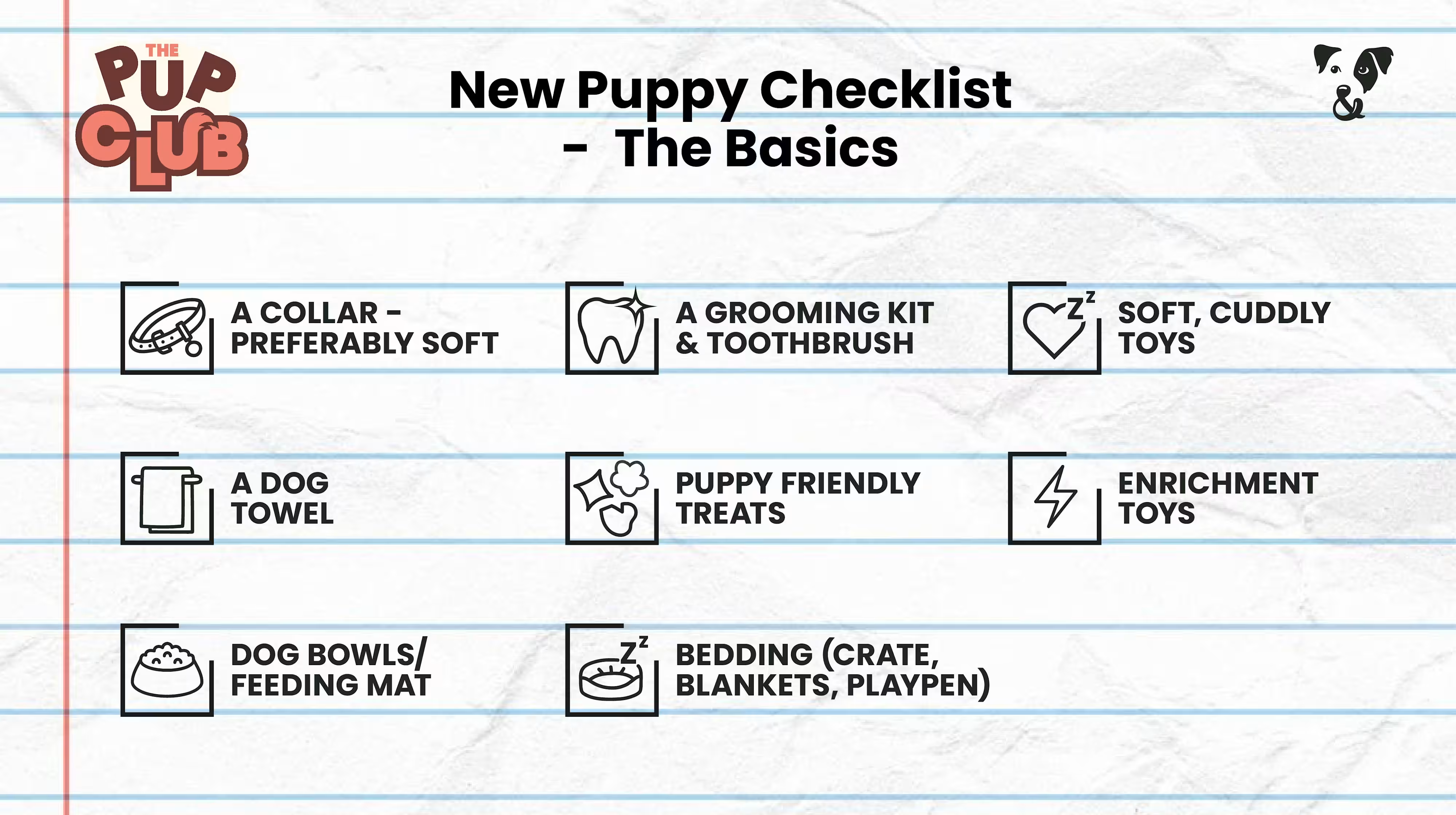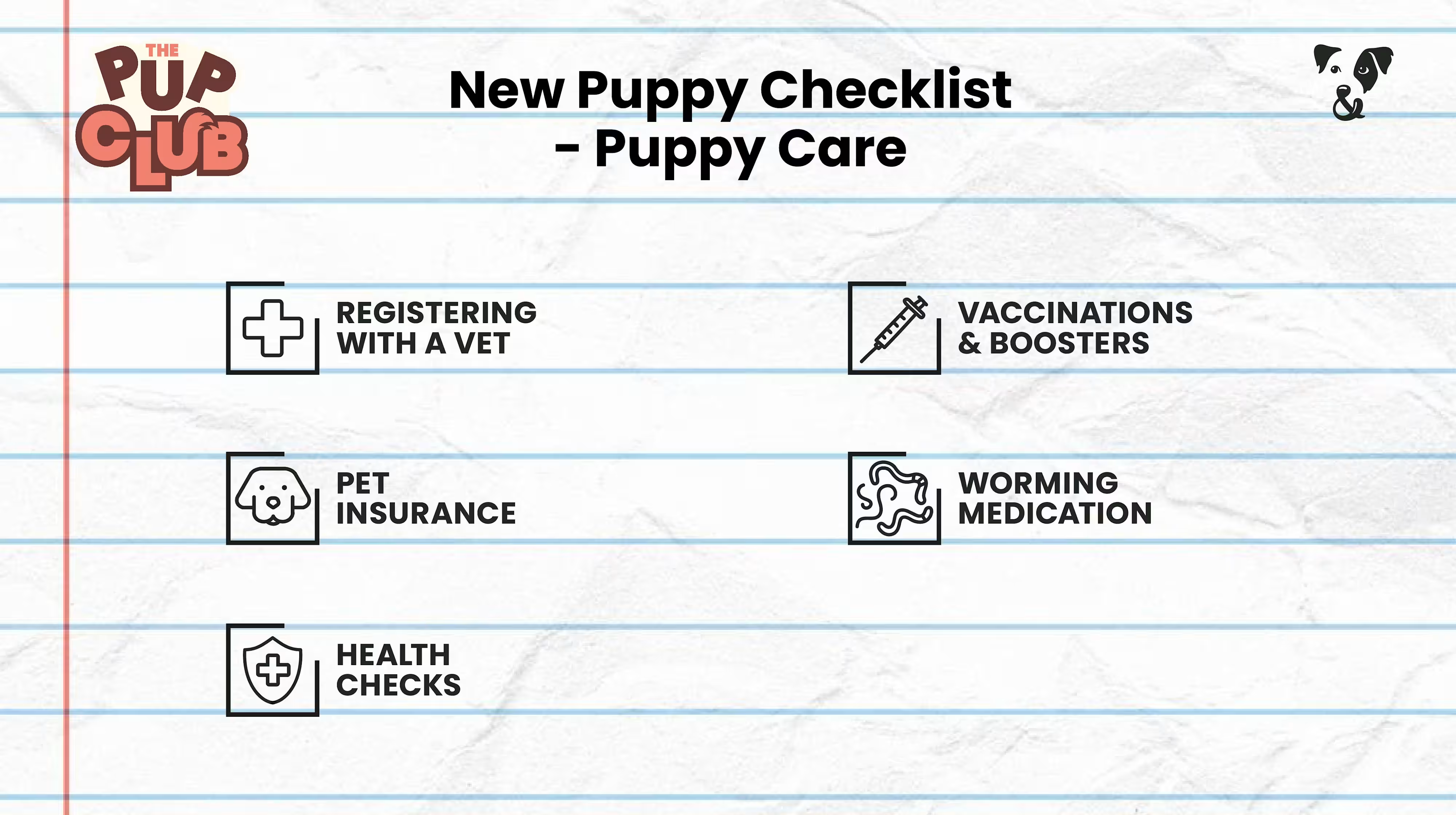Congratulations on deciding to bring a new puppy into your family! As a veterinarian with years of experience, I know the joy and chaos that comes with a new furry friend. Let's walk through the essential steps to ensure your puppy has a happy, healthy start in their new home.
Preparing for your new puppy
Choosing the right breed and breeder
Finding the perfect puppy starts with selecting the right breed and breeder. Think about your lifestyle: Do you have a lot of space, or are you living in a flat?
Are you looking for a high-energy companion, or perhaps a more laid-back mate? Answering these questions can help you pinpoint the breed that best suits your life.
When it comes to breeders, due diligence is key. Look for reputable breeders who prioritise the health and well-being of their puppies.
They should be more than happy to show you health clearances for the puppy's parents and discuss their breeding practices. Remember, a good breeder will also have questions for you, ensuring their puppies go to suitable homes.
Puppy-proofing your home
Before your new puppy arrives, make sure your home’s a safe haven for them. Puppies are curious by nature and will chew on just about anything. Secure electrical cords, put away small objects that could be swallowed, and ensure toxic plants and substances are out of reach.

Essential supplies for your new puppy
Here’s a quick checklist to get you started:
A comfortable bed
Food and water bowls
High-quality puppy food
Collar, leash, and harness
Chew toys to keep those little teeth busy
Grooming supplies, like a brush and nail clippers

Setting up your puppy's space
Designate a space just for your puppy. This could be a crate or a corner of a room with their bed and toys. This will be their safe space where they can relax and feel secure. It helps to choose somewhere that has easily-washable floors, as there’s bound to be a few accidents at the start.
Health and wellness
Vet visits and vaccinations
Schedule a vet visit within the first week of bringing your puppy home. Your vet will check for congenital conditions, discuss vaccinations , and set up a health schedule. Puppies typically start vaccinations between 6 to 8 weeks of age, and require several rounds to build up their immunity.
Preventative care and deworming
Preventative care is crucial so make sure you discuss flea , tick, and worm prevention with your vet. Most puppies need to be dewormed every few weeks until they’re about six months old.
Oral hygiene and dental care
Start a dental care routine early. Regular brushing and dental chews can help prevent dental diseases that might cause serious health issues later. The earlier you start this, the more tolerant your puppy will be to having their teeth brushed - and therefore the easier it’ll be to keep their teeth clean.

Training and socialisation
Crate training and housebreaking
Crate training helps in housebreaking, and provides your puppy with a safe place to stay when unsupervised. Introduce the crate gradually and make it a positive space with comfortable bedding and toys.
Crate training is essential in giving you independence as the owner - it allows you to comfortably leave your puppy in their crate when you might need to go out.
Puppy socialisation and training classes
Socialisation isn't just about meeting other dogs - it's also about exposure to different environments and sounds. Puppy classes are a great way to start, offering controlled and safe interactions that are critical for your puppy's development.
Daily care for your puppy
Feeding and nutrition
Feed your puppy a diet formulated for puppies . These foods are enriched with essential nutrients and extra energy to support their rapid growth. Follow the feeding guide on the food package and adjust as necessary with guidance from your vet.
Puppy
Vet-recommended food and supplements, perfect for healthy pup growth and development
-

 from
fromCurrent price: £8.99
Puppy Complete Dry Superfood -

 from
fromCurrent price: £2.49
Puppy Wet Food -

 from
fromCurrent price: £3.99
Puppy Beef Jerky Training Treat -

 from
fromCurrent price: £35.49
Puppy Complete Bundle -

 from
fromCurrent price: £10.49
Meaty Treats Taster Pack -

 from
fromCurrent price: £11.49
Salmon Oil For Dogs -

 from
fromCurrent price: £3.99
Calming Probiotic Meaty Treats -

 from
fromCurrent price: £3.99
Dental Probiotic Meaty Treats -

 from
fromCurrent price: £5.99
Health & Digestion Bone Broth -

 from
fromCurrent price: £5.99
Calm & Relaxed Bone Broth -

 from
fromCurrent price: £3.99
Peanut Butter Probiotic Nutty Treats -

 from
fromCurrent price: £15.99
Dental Powder For Dogs
Exercise and mental stimulation
Puppies have a lot of energy! Regular exercise and mental stimulation are crucial. Provide toys that challenge them mentally and schedule regular playtimes. Similarly, plenty of chew toys will keep them occupied, especially when they start teething - and to help keep your furniture intact!
Grooming and coat care
Start grooming early to get your puppy used to being handled. Regular brushing keeps the coat shiny and healthy, and helps reduce shedding (as well as allowing you to identify any parasite infestations early!).
Safety and identification
Microchipping and ID tags
A microchip and ID tag are essential for your puppy’s safety. Microchipping is a simple procedure that can be done during a routine vet visit - however, it’s a legal requirement for the breeder to do this before handing the puppy over to you so check that they’ll do this before picking your new puppy up.
Baby gates and pet-friendly Areas
Use baby gates to restrict your puppy’s access inside the home. This helps prevent accidents and keeps your puppy safe from potential hazards. Have designated areas where your puppy’s allowed to roam free and play.
Pet insurance and emergency plans
Consider getting pet insurance to cover unexpected medical expenses. It’s also important to have an emergency plan in place, including the contact number of your vet and the nearest emergency clinic.
Conclusion
Bringing a new puppy into your life is a delightful adventure filled with cuddles and play, but it also comes with a big responsibility. With the right preparation and care, you’ll be well on your way to a wonderful life with your new companion.
Remember, patience and consistency are your best tools when welcoming a puppy into your family. Good luck, and enjoy the journey!




